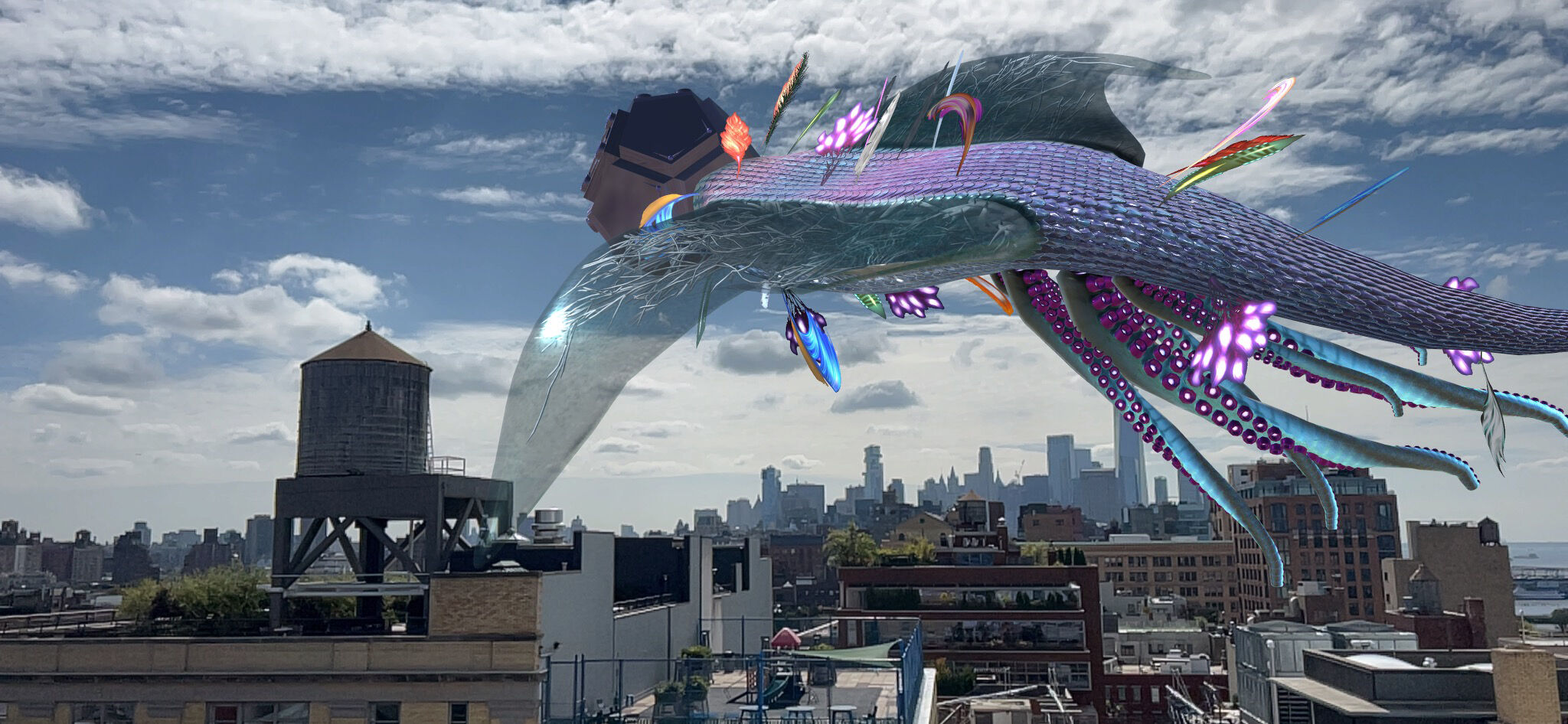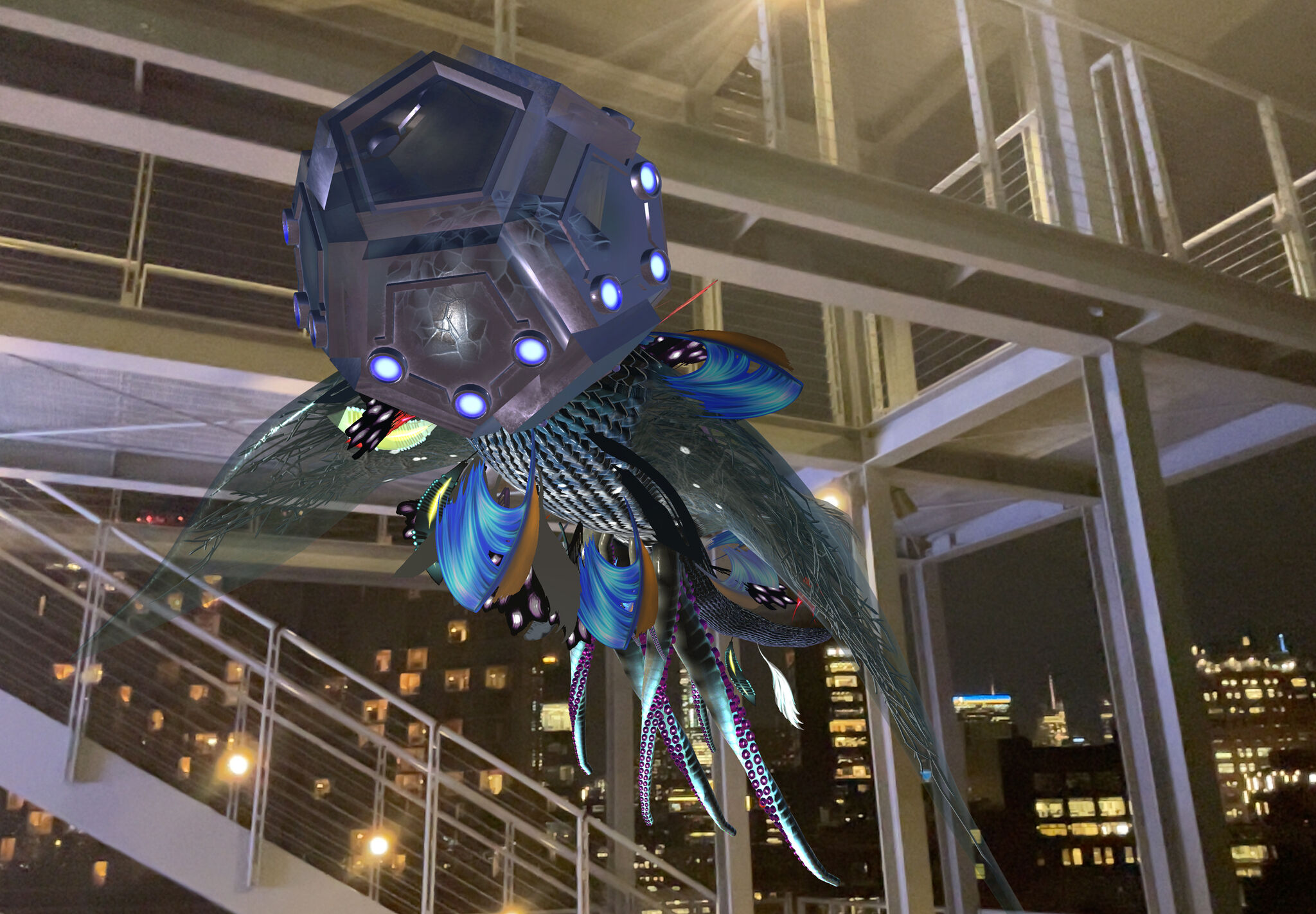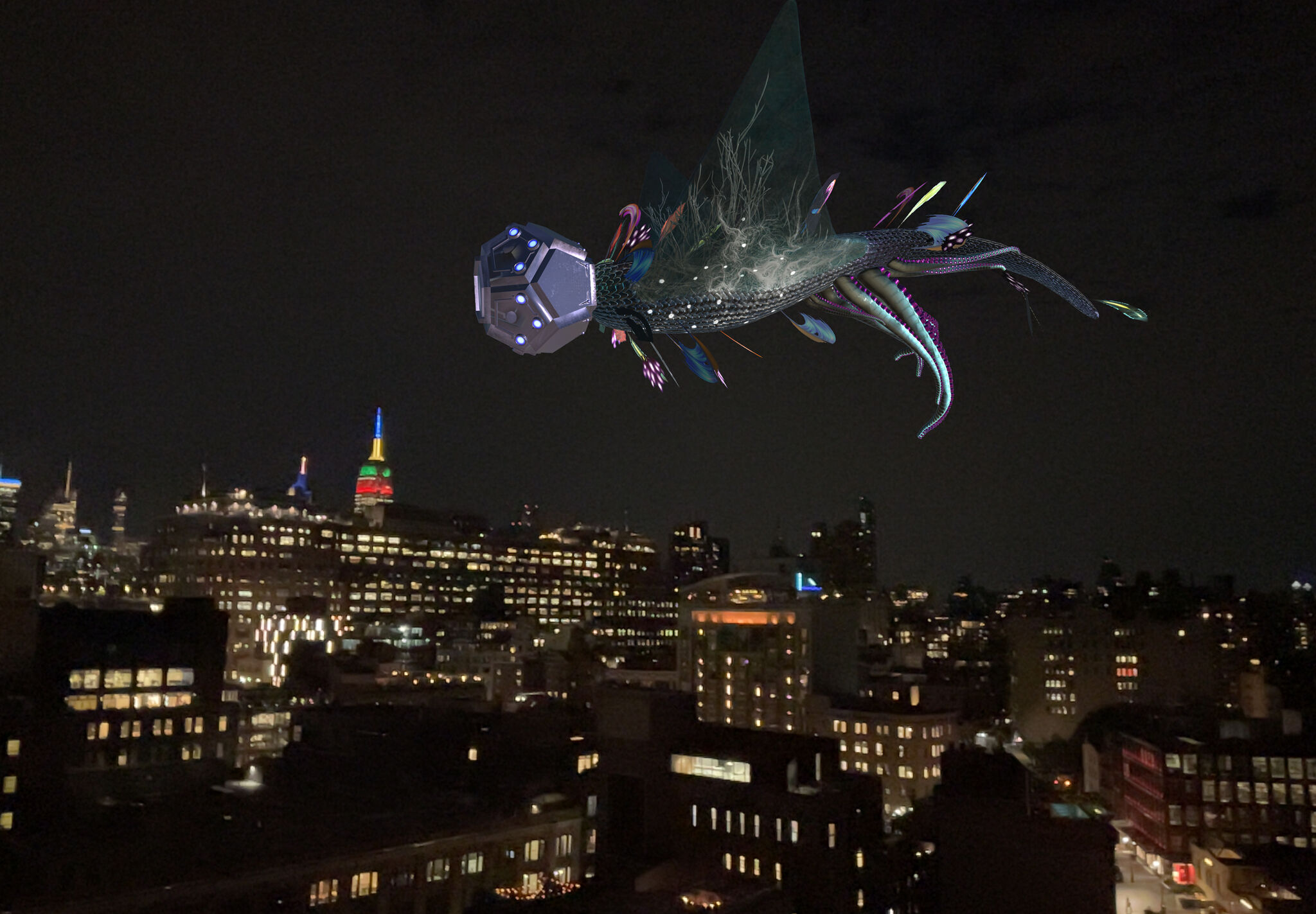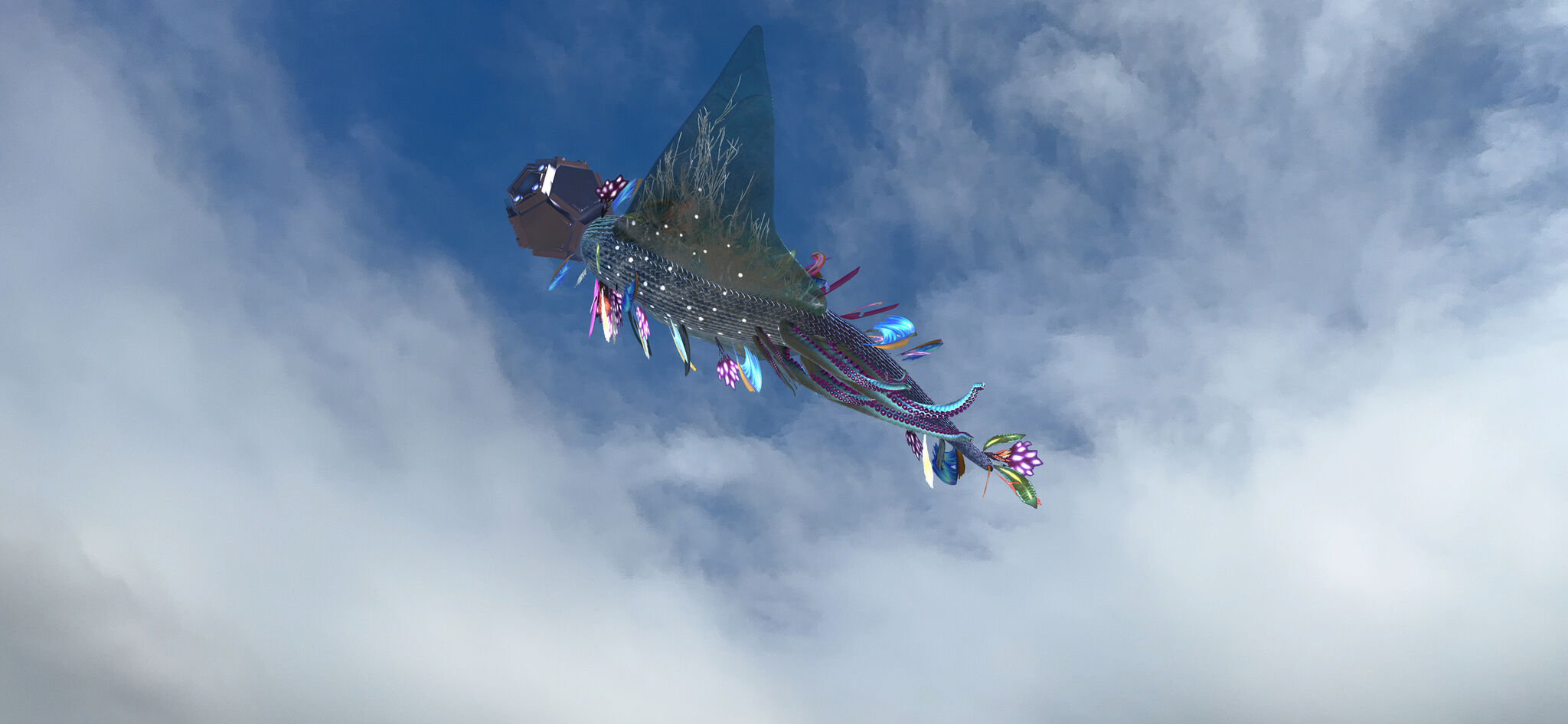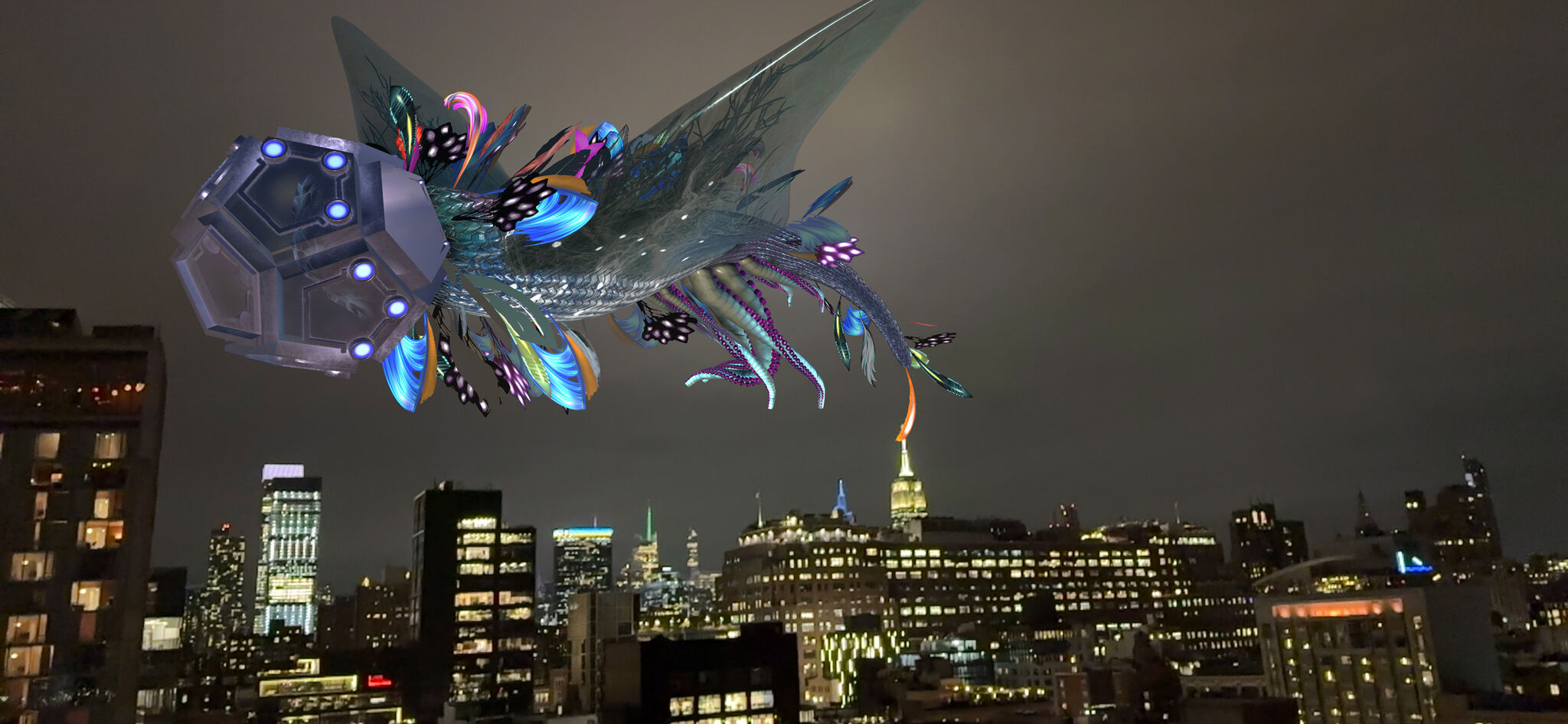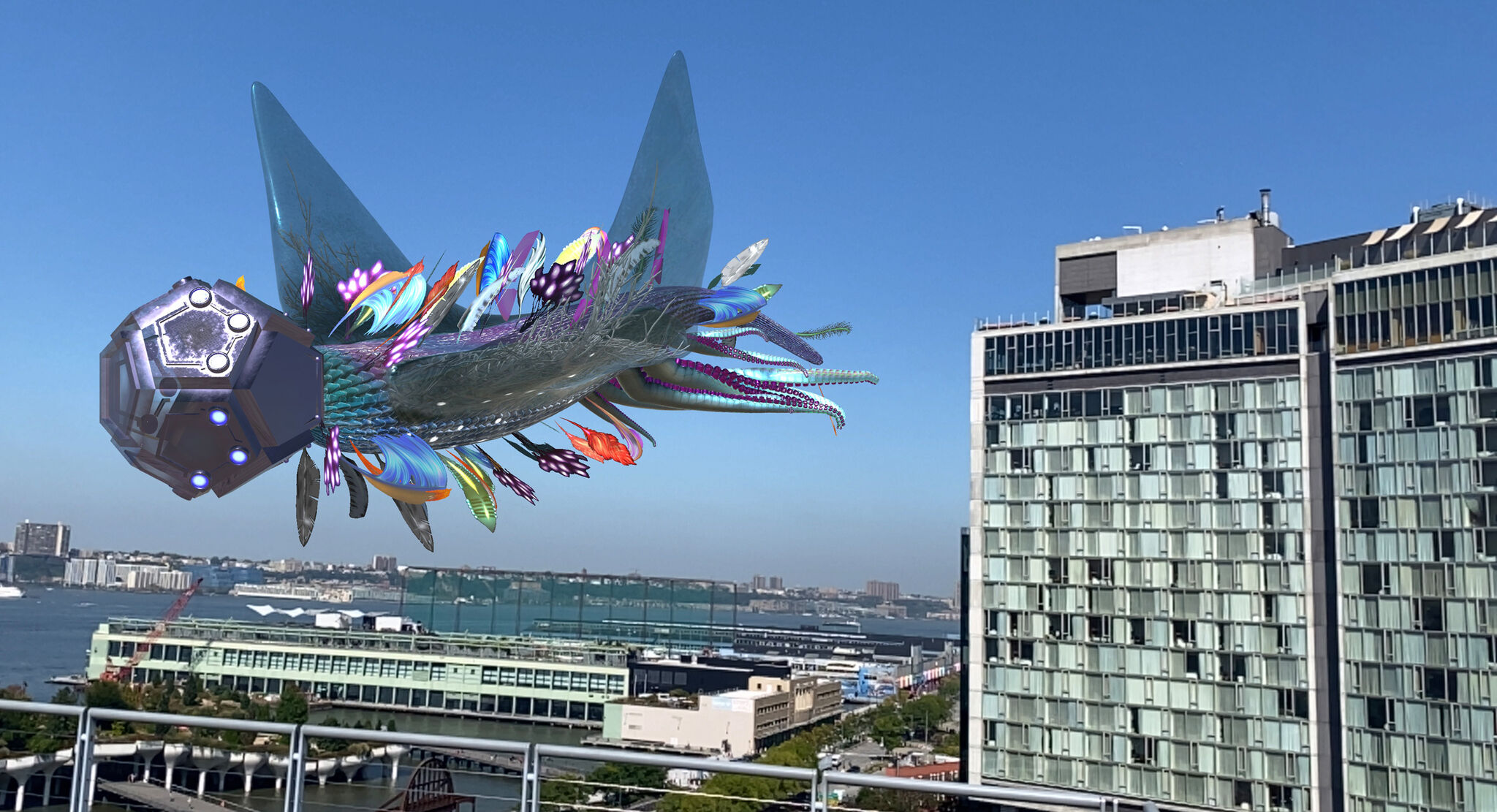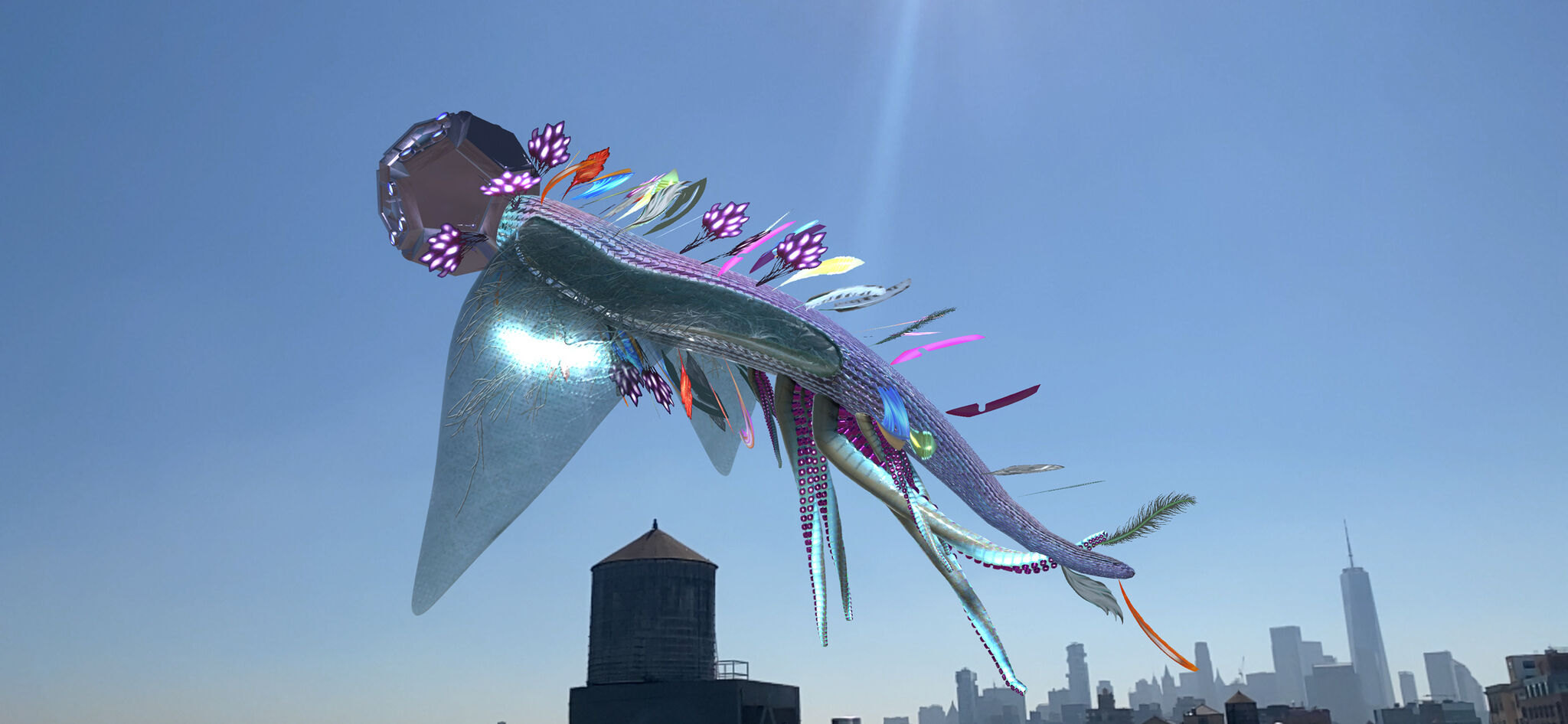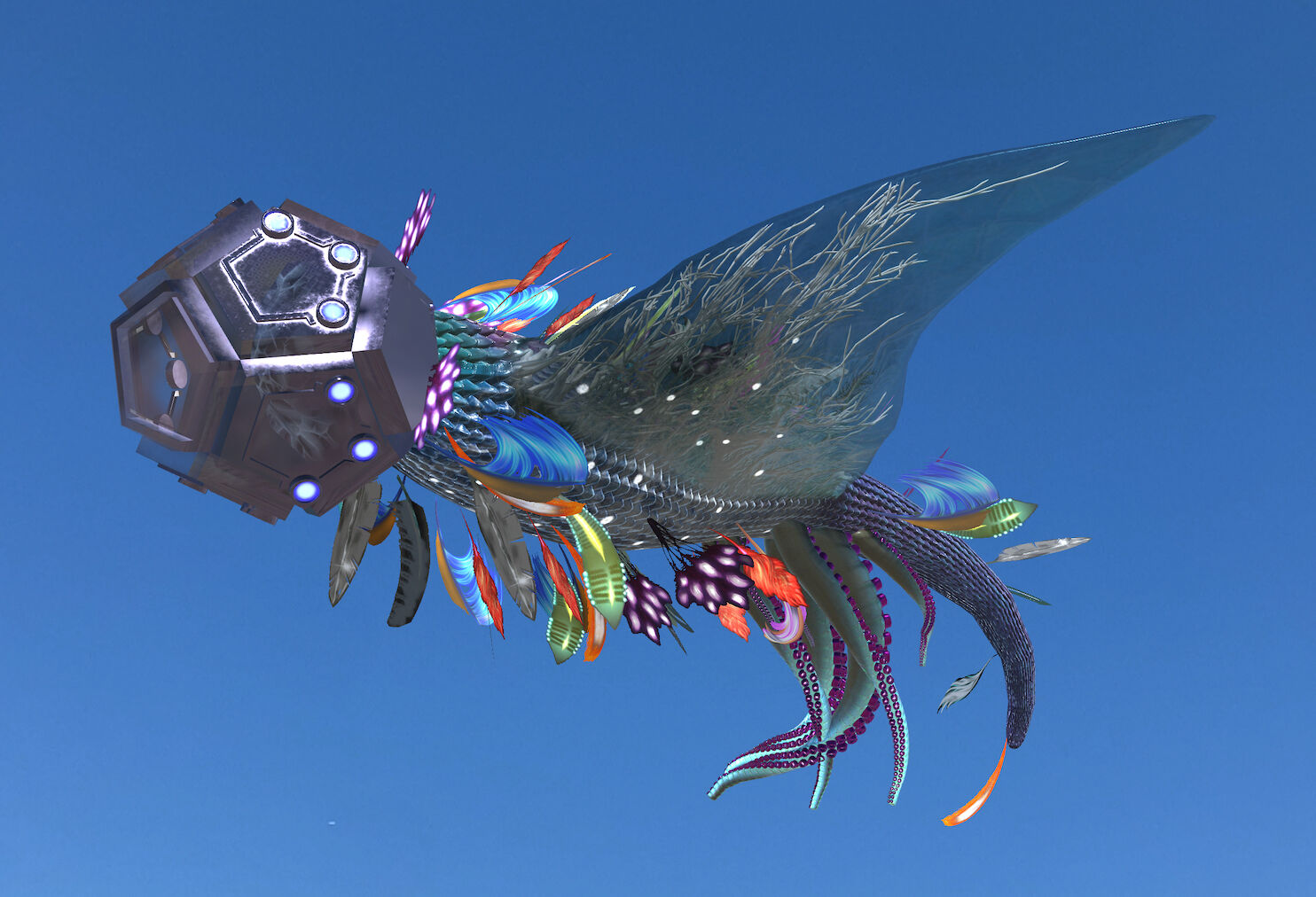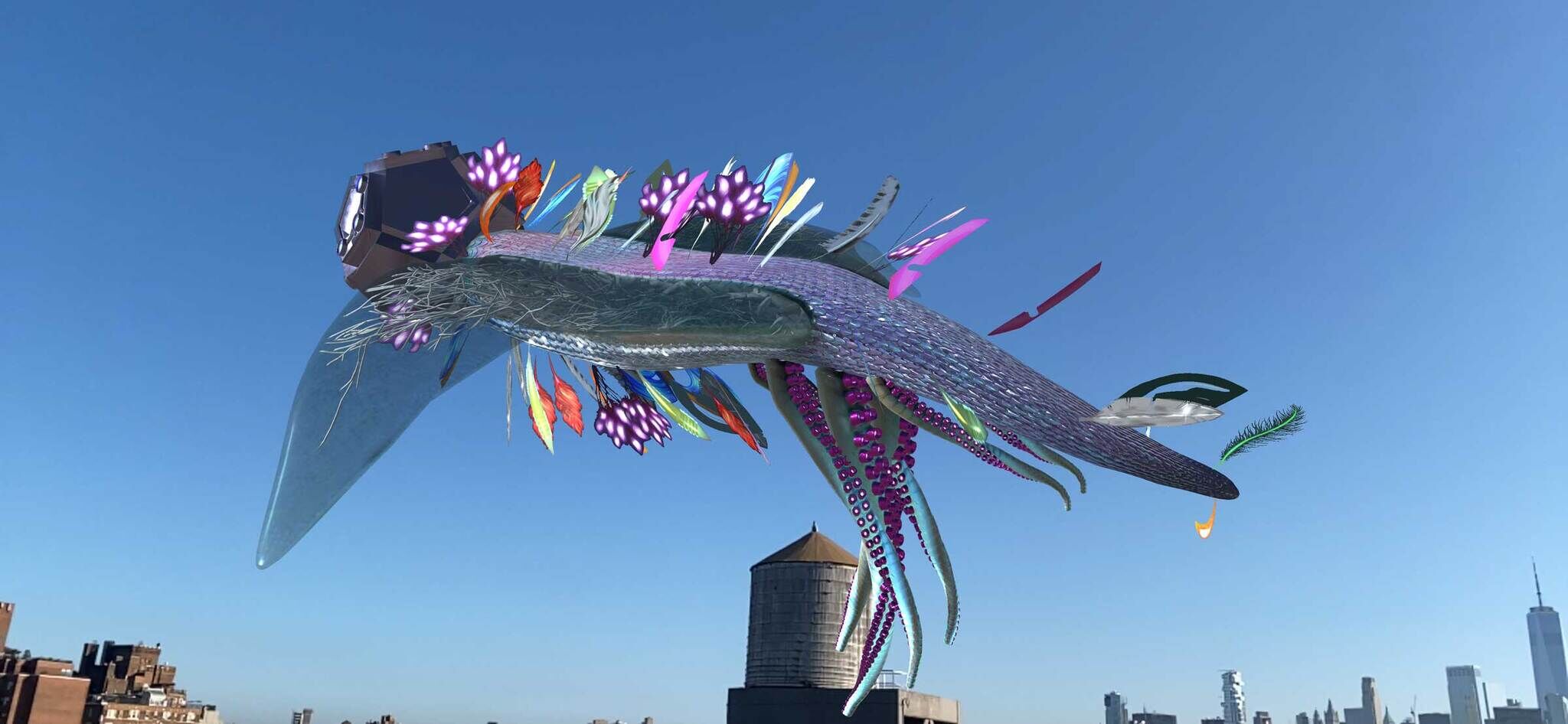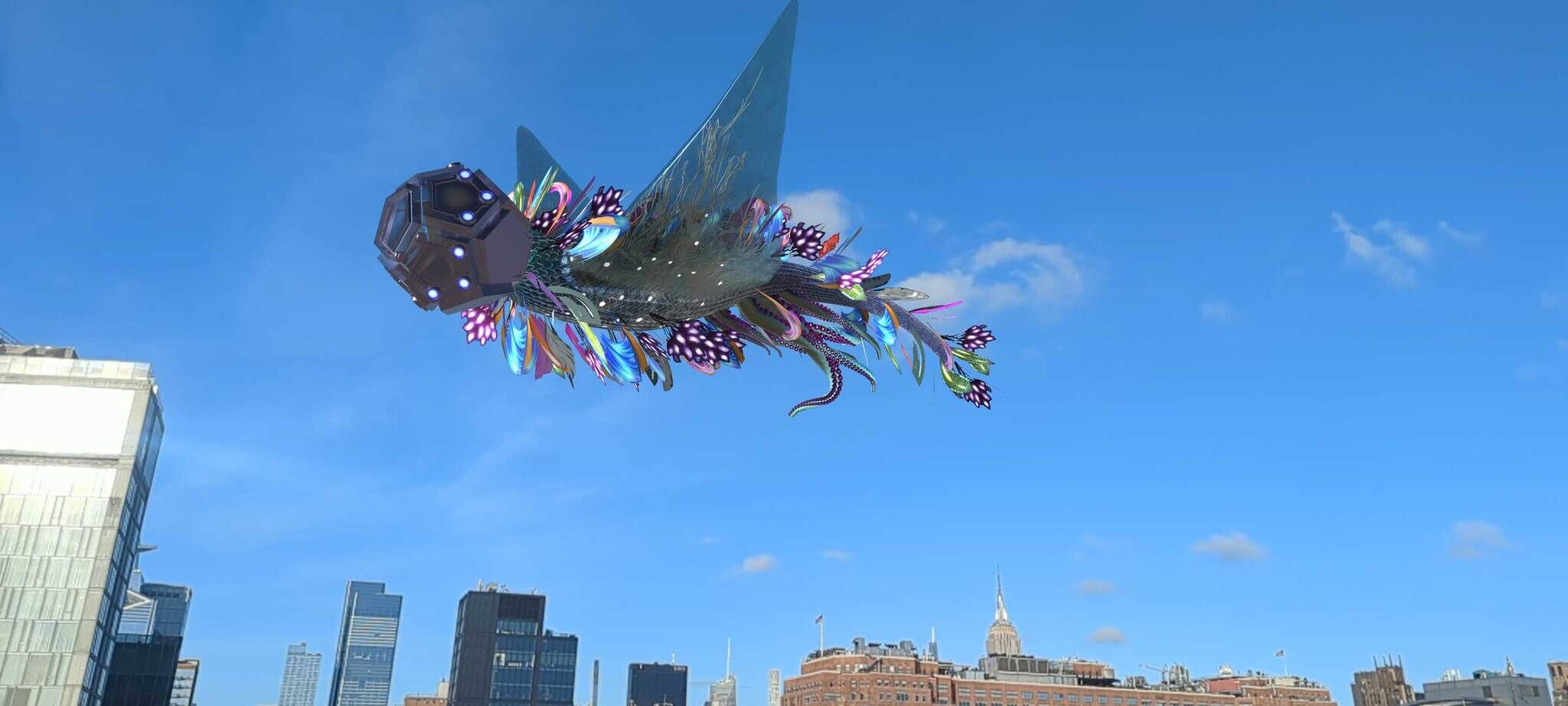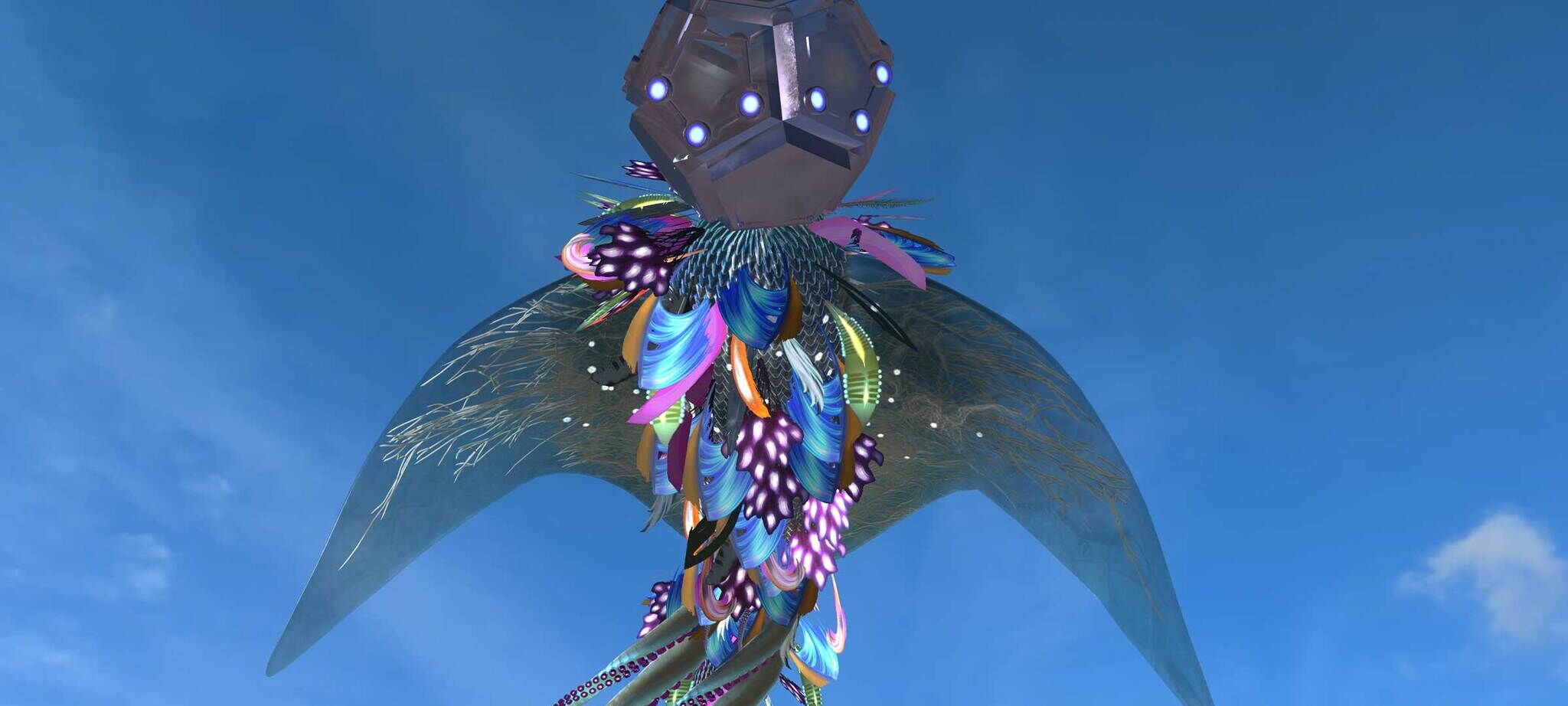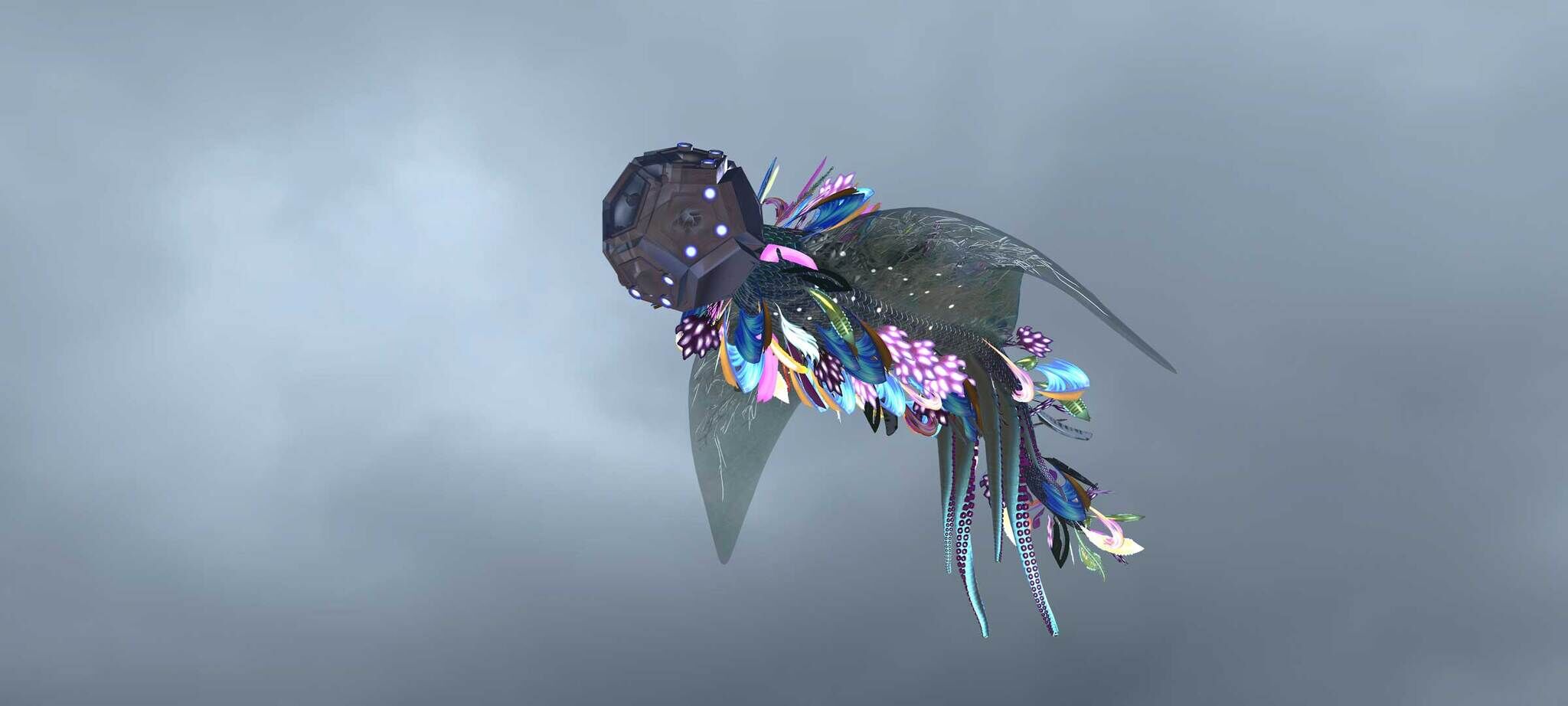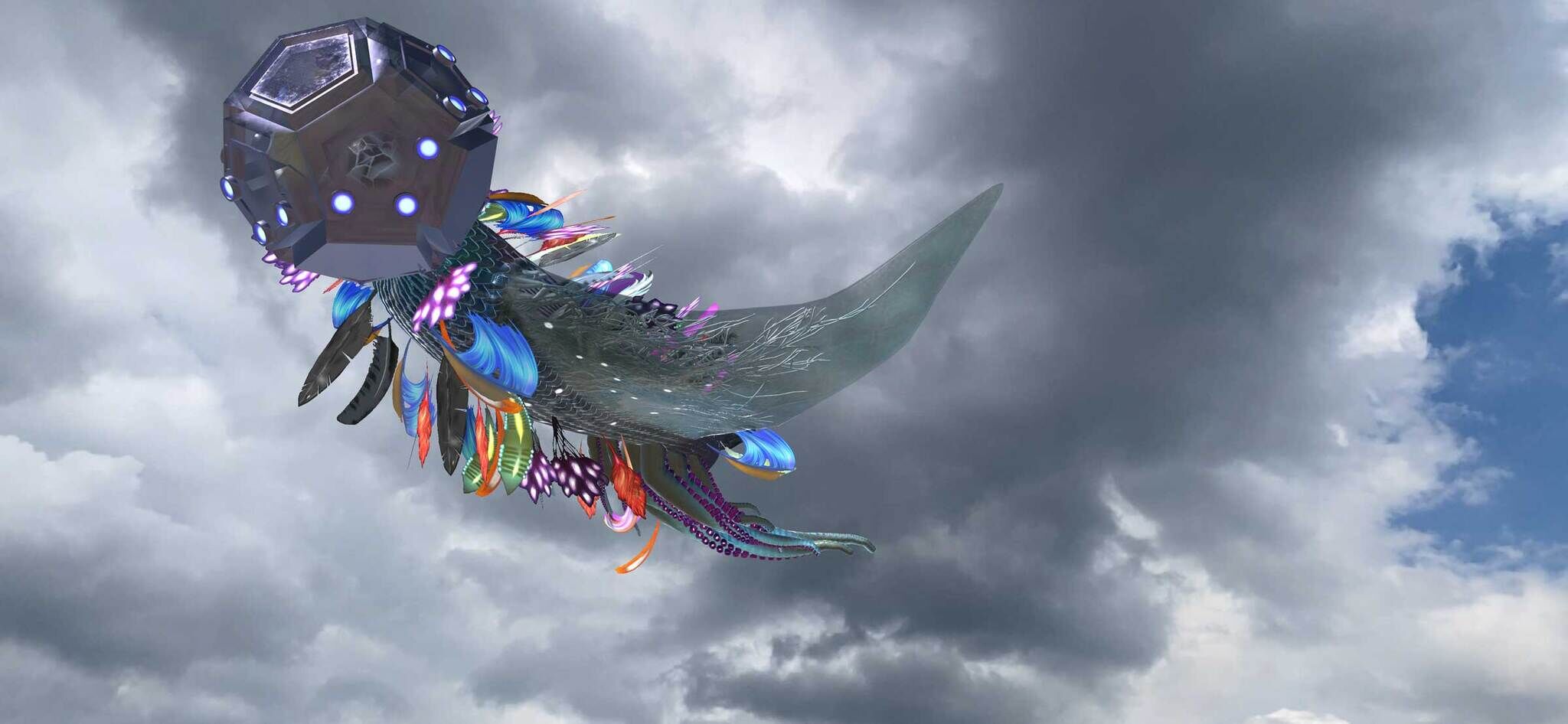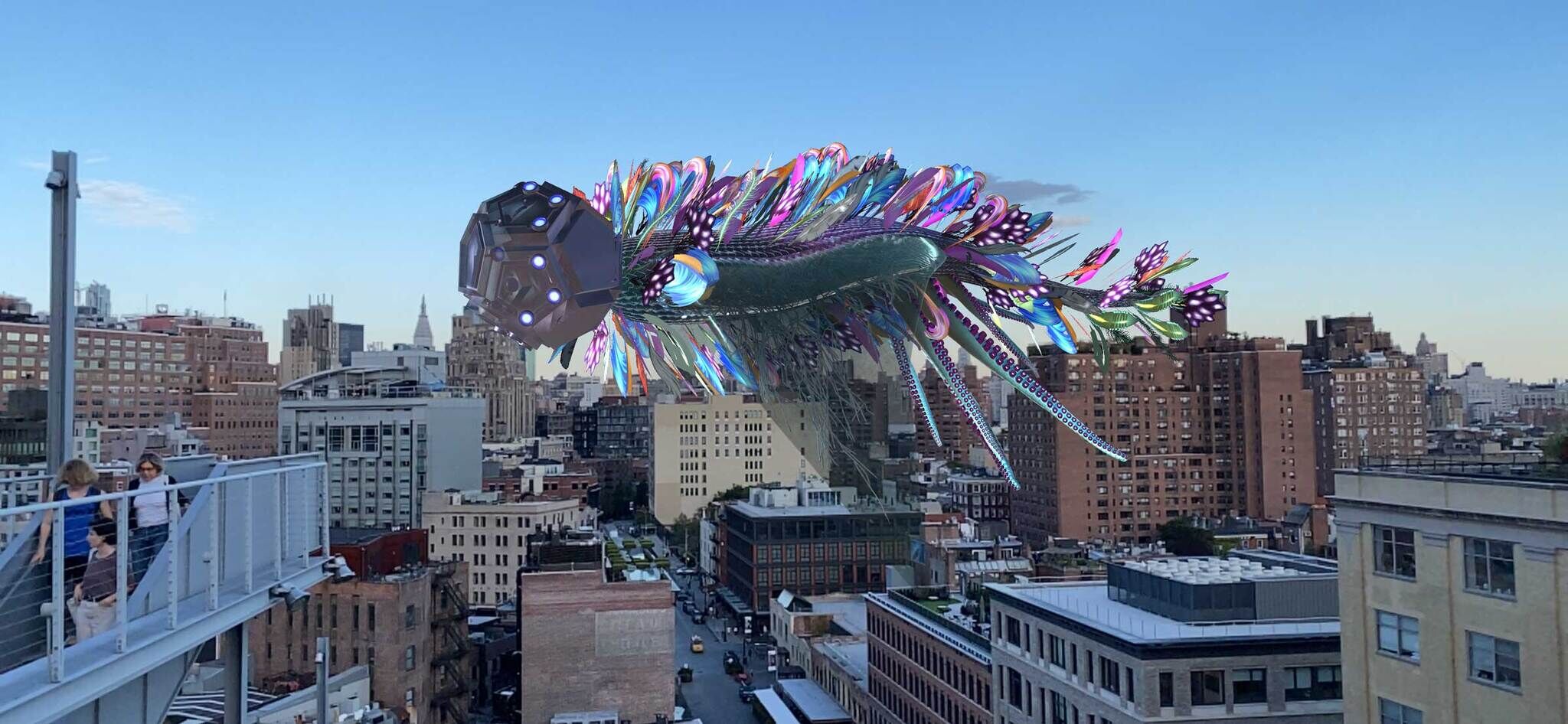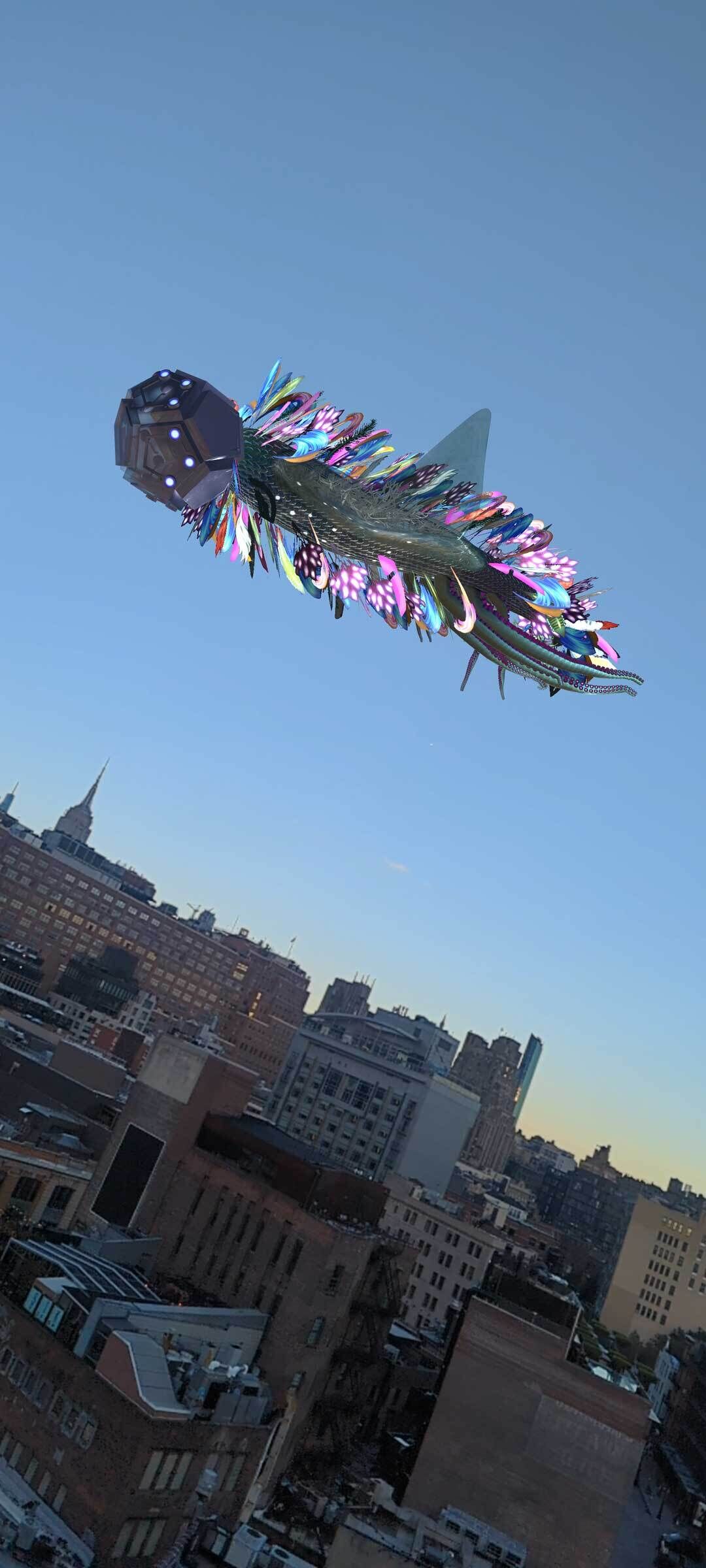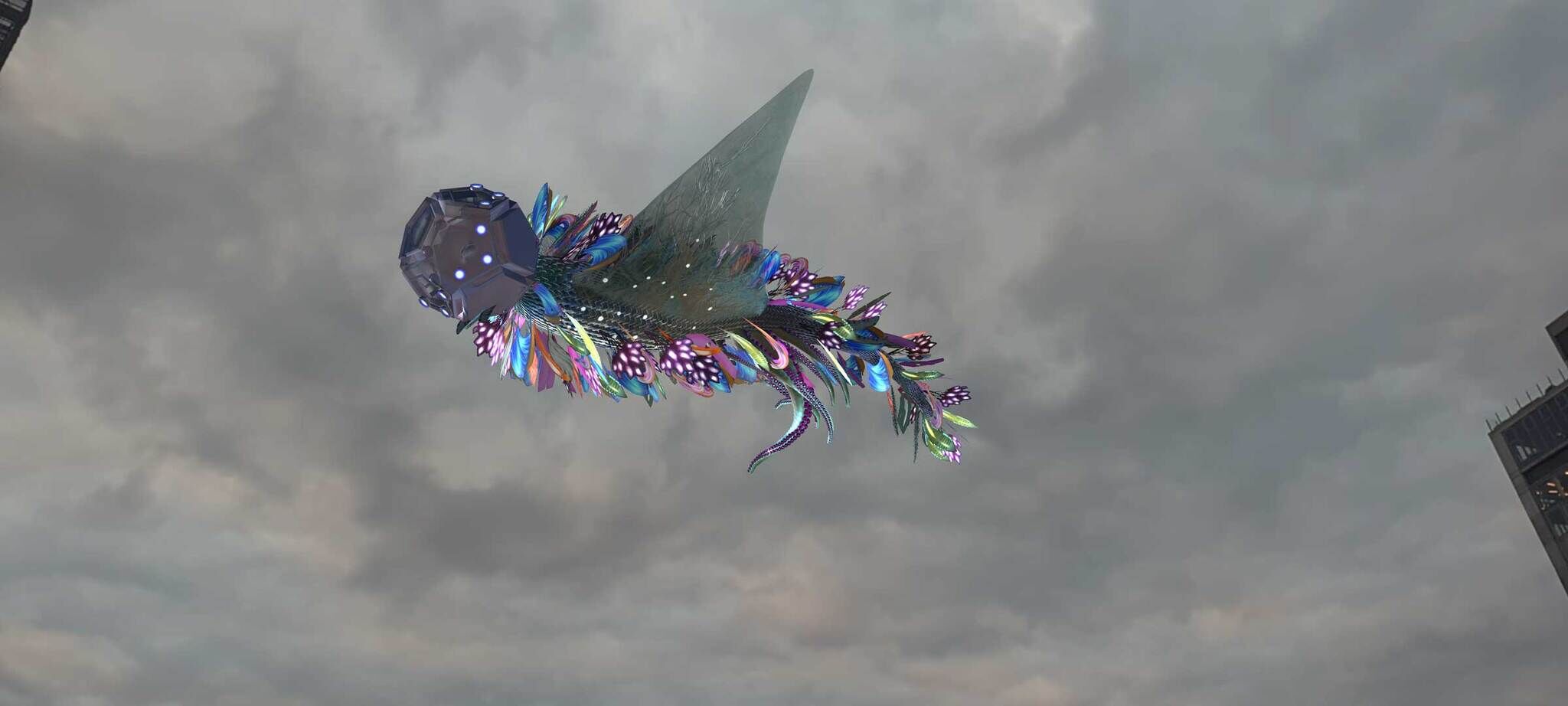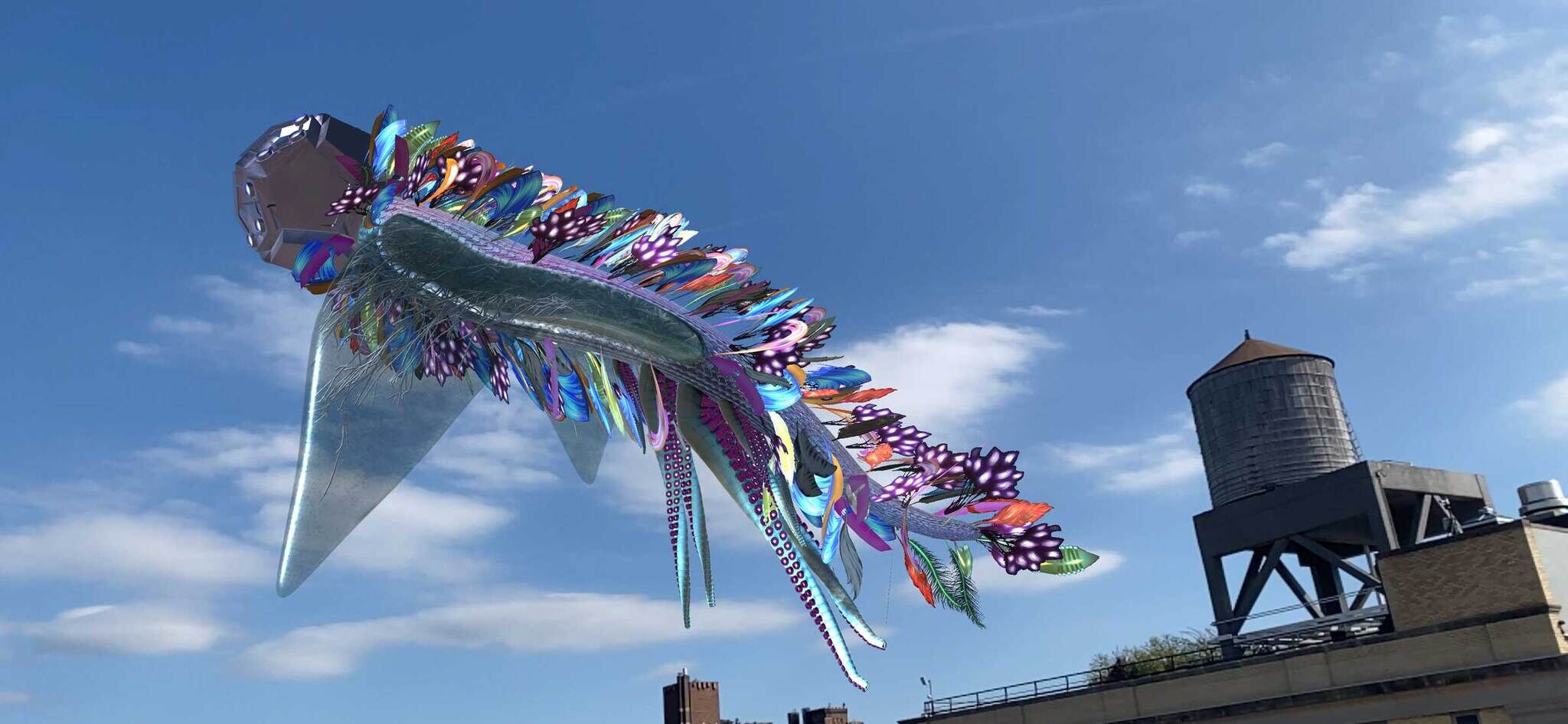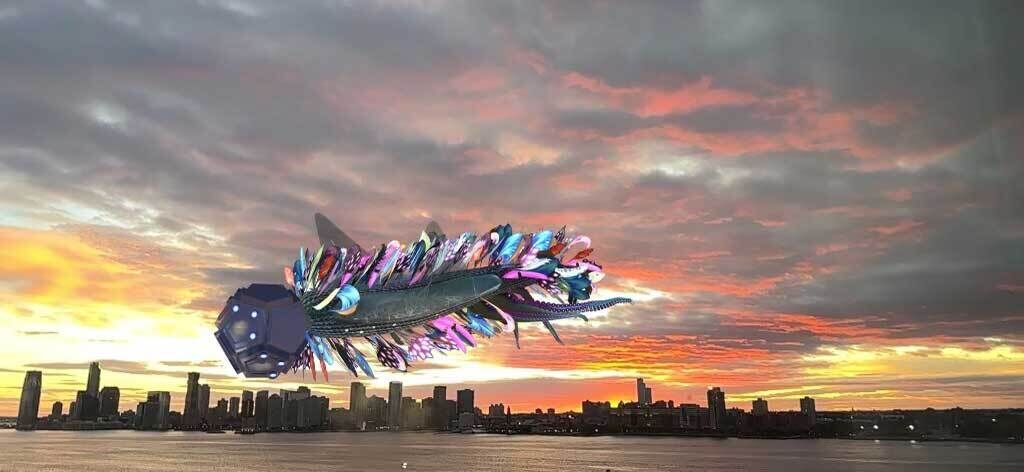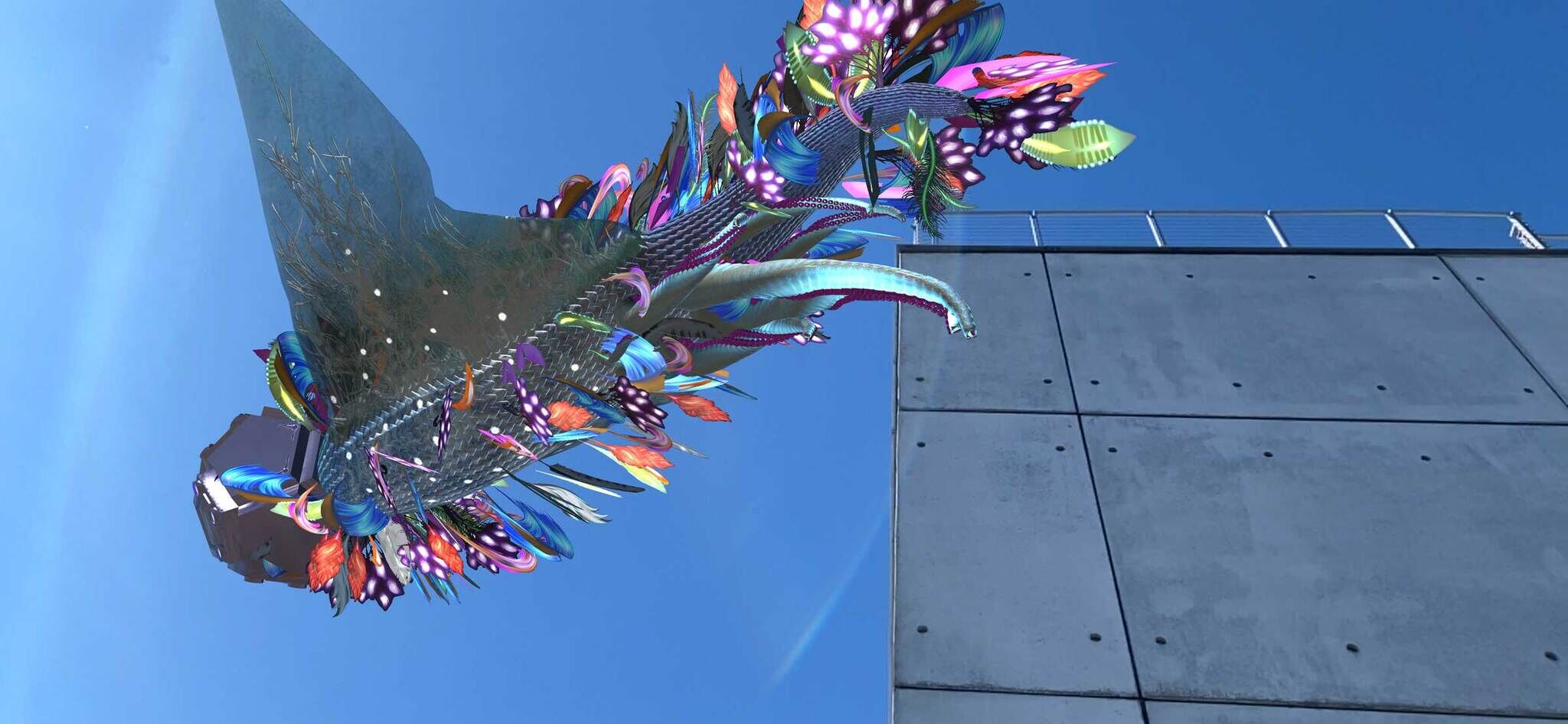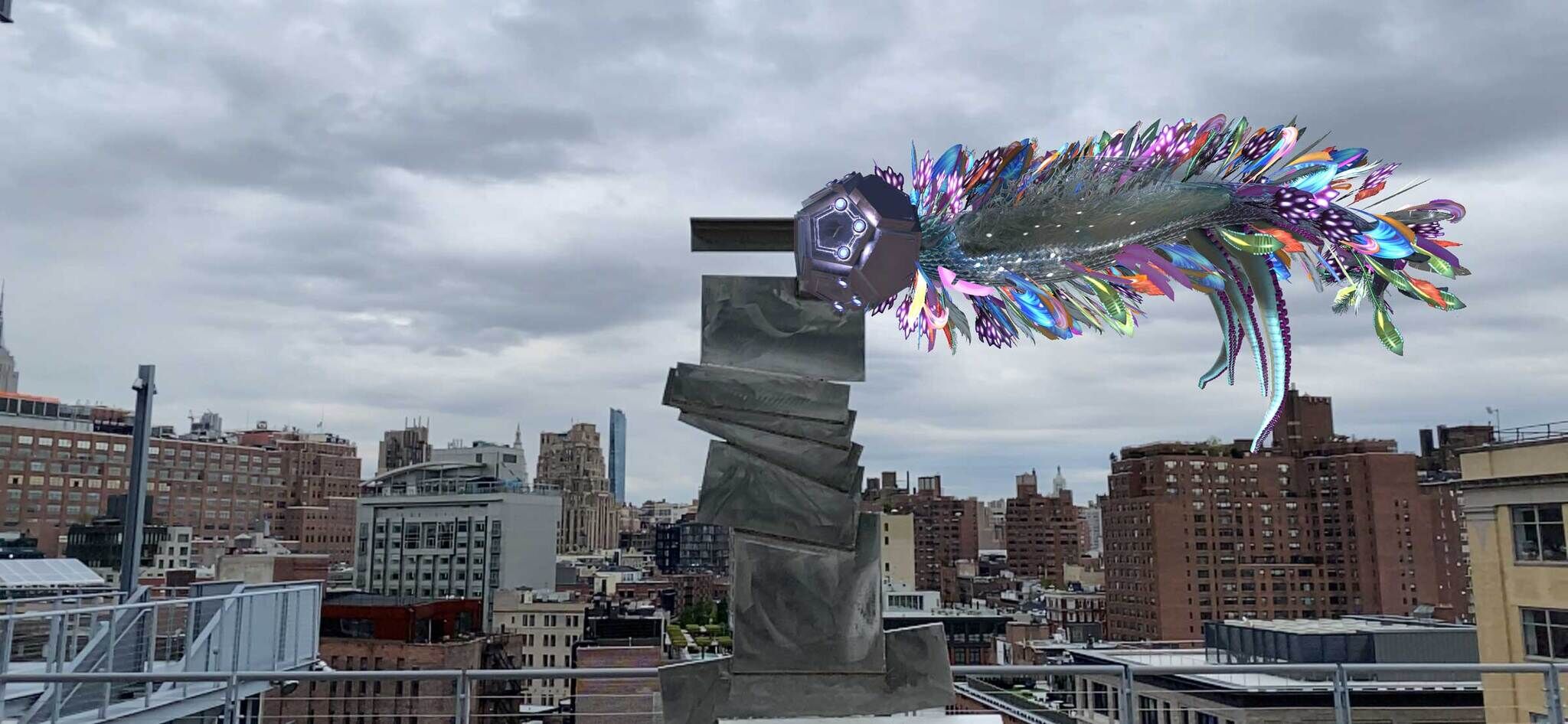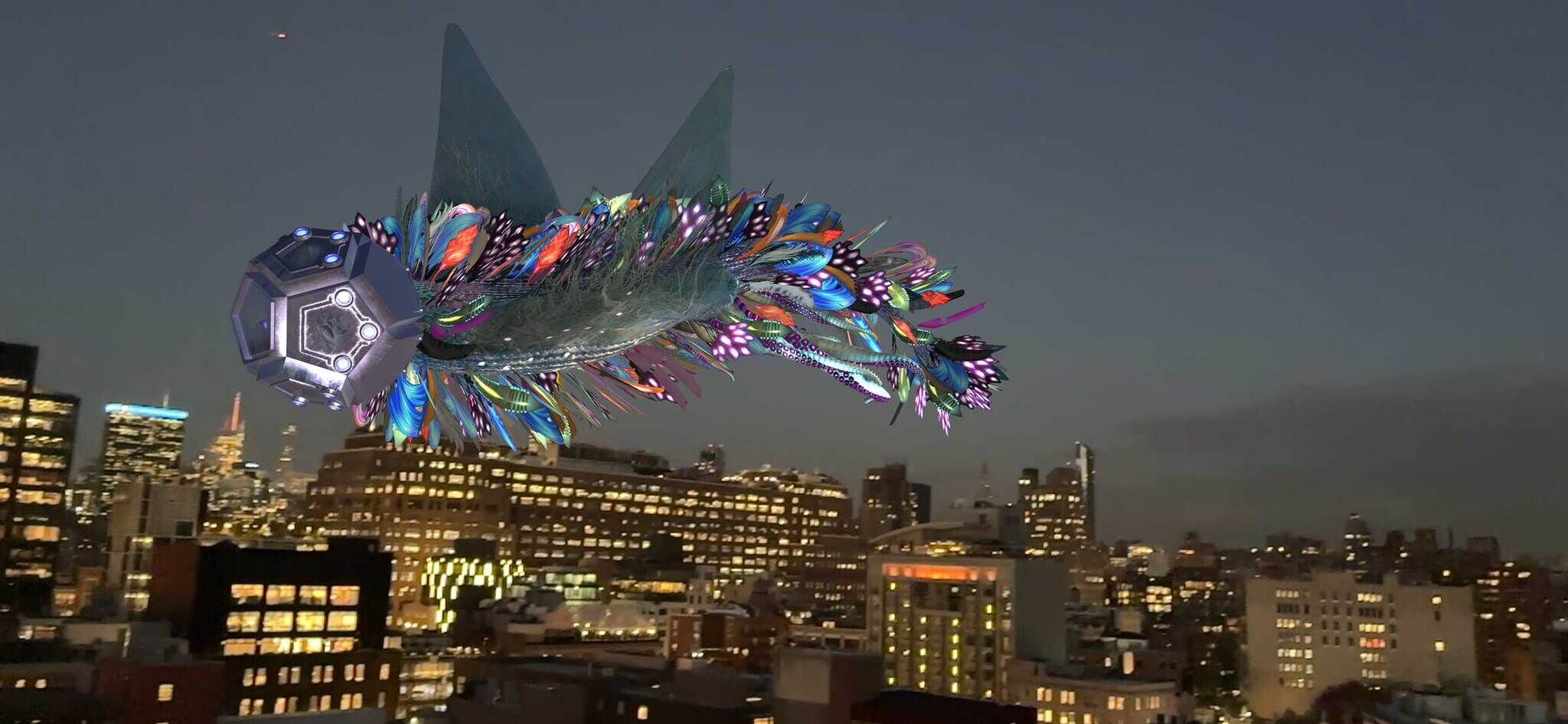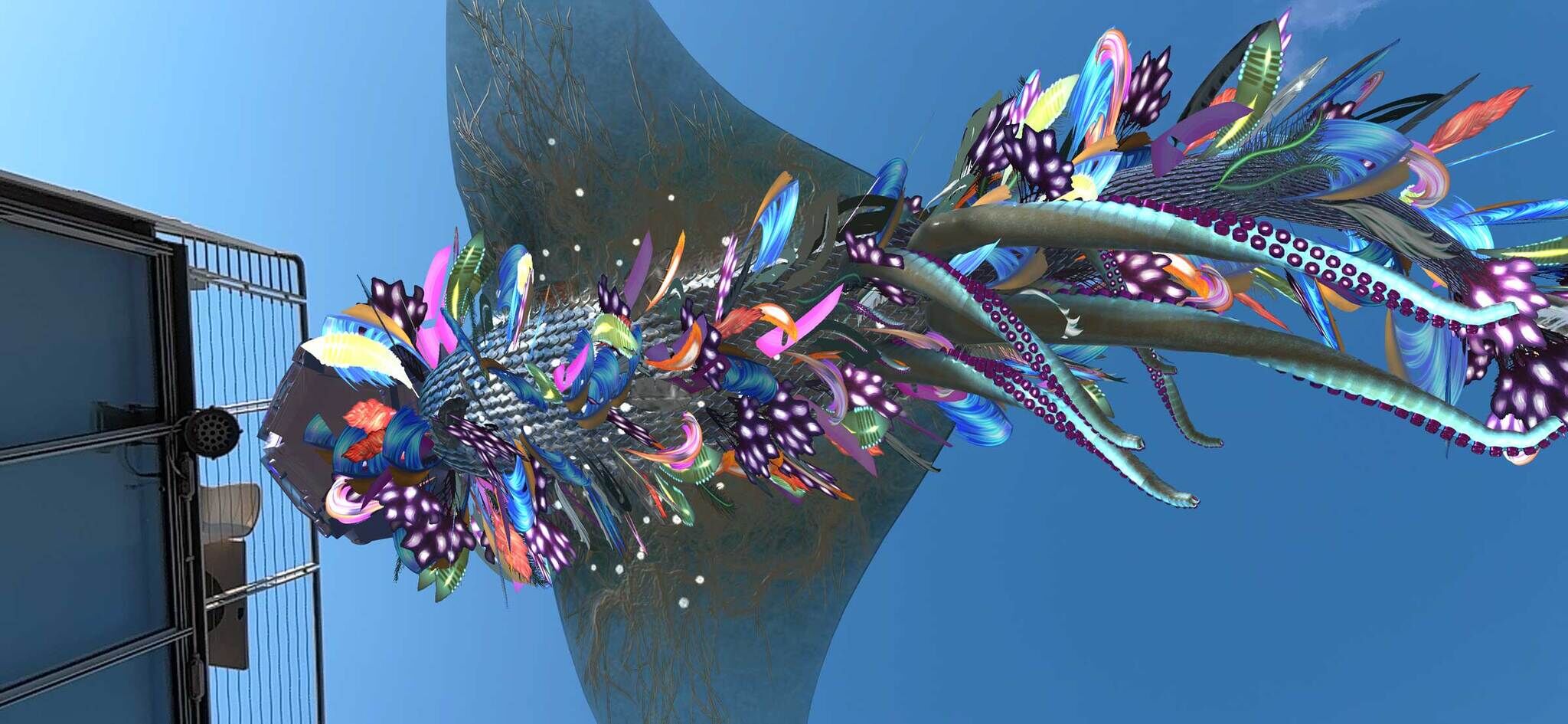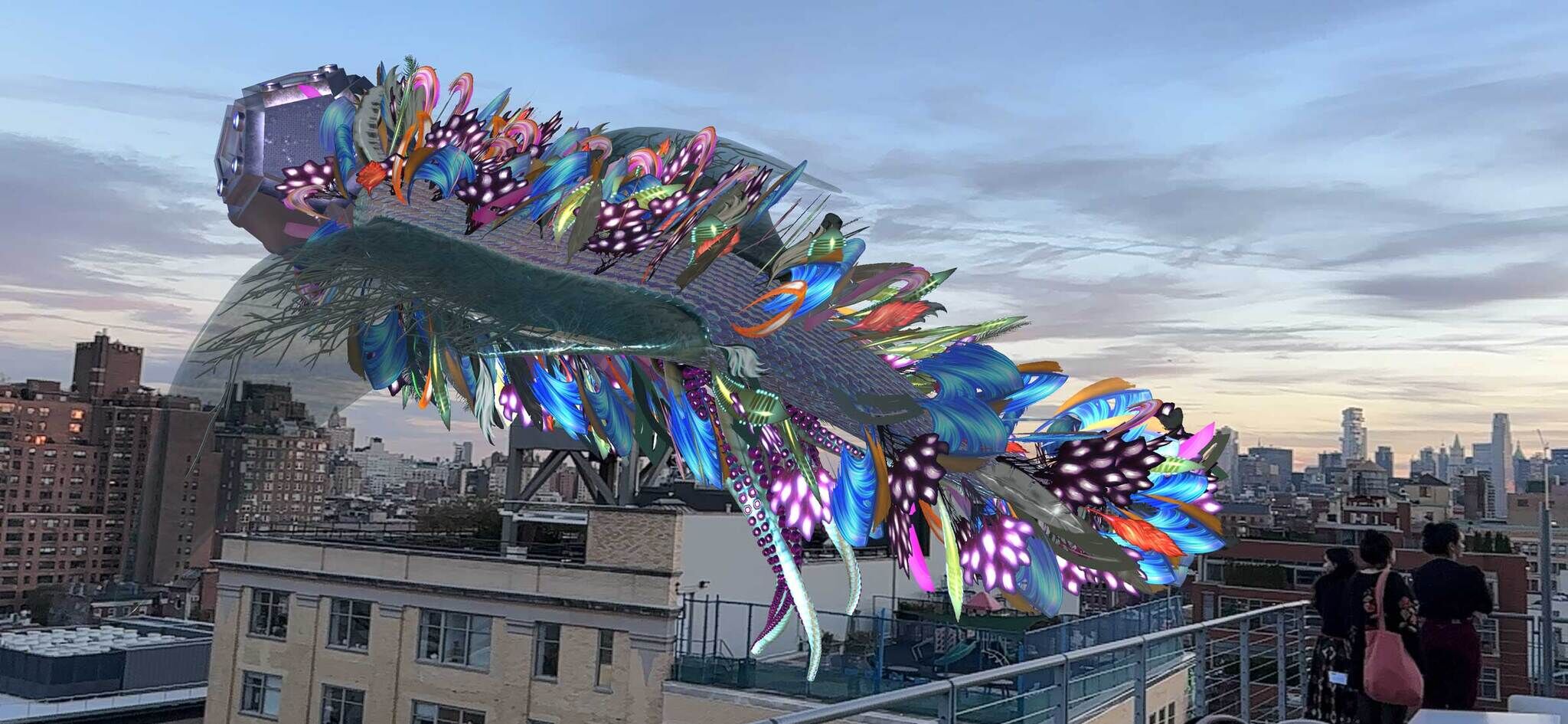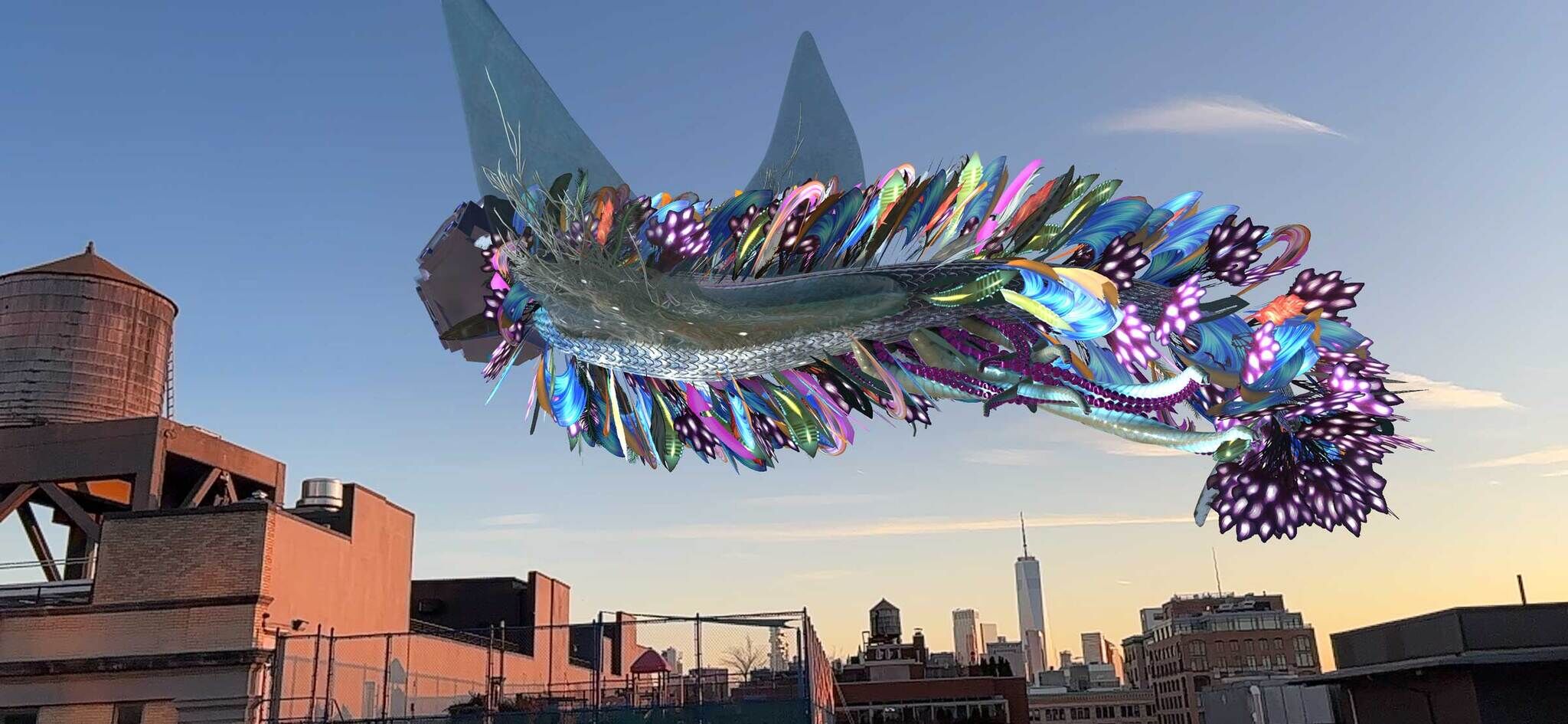Nancy Baker Cahill: CENTO
On view
Online
Nancy Baker Cahill: CENTO
On view
Floor 8
Nancy Baker Cahill’s CENTO consists of a monumental augmented reality “creature” hovering over the Floor 8 terrace of the Whitney Museum, and an accompanying video imagining the creature’s cave-like habitat. The video flies through the three environments of the habitat—the nest, the refueling chamber, and the space where the creature metabolizes its fuel into energy and takes flight. The end of the video includes instructions for downloading a free augmented reality (AR) app that allows users to place feathers on the creature’s body and witness its evolution on their smartphones or tablets from the Whitney Museum’s terraces. Viewers unable to visit the Museum can follow CENTO’s development at the bottom of this page.
CENTO is a fictitious, futuristic, bio-engineered interspecies entity collectively transformed through participatory AR. It has a serpentine body lined with scales and mycelium (the filaments that form the vegetative part of a fungus), limbs like a cephalopod (the marine animals whose heads directly connect to arms), a manta ray wing, and colorful feathers. Each of the twelve feathers you can choose in the app and add to CENTO’s body is associated with a different functionality related to the creature’s evolutionary survival, such as communication, navigation, energy conversion, or memory bank.
CENTO points to the necessity of co-existence and intersection of beings in the face of the climate crisis. It positions different species as one interconnected body and draws attention to the care and cooperation needed to ensure the survival of life forms under changing conditions. The work asks whether a creature imagined as a collage of human, cephalopod, microbiome, avian, mycelial, marine, and machine could fulfill or even exceed basic evolutionary requirements. CENTO takes its name from the term for a collage poem consisting of lines from other poets’ works, alluding both to the collage body of the creature and the audience’s contributions to the work.
AR production: Shaking Earth Digital
Sound by Caleb Craig
Experience CENTO at the Whitney Museum:
You can view and interact with CENTO in person on the Whitney Museum’s terraces, with Floor 8 as the prime viewing point and Floors 5 and 6 providing different angles. Use the QR code on the terrace signage to download the free 4th Wall AR app to select a feather to add to the creature.
Experience CENTO from locations worldwide:
Download the free 4th Wall AR app through the instructions at the end of the video accessible from this page to select a feather and add it to the creature. CENTO’s evolution and appearance at the Whitney Museum will be regularly documented and images will be linked at the bottom of this page.
Nancy Baker Cahill (b. 1970) is an award-winning interdisciplinary artist whose hybrid practice spans research-based immersive experiences, video installations, and conceptual blockchain projects and focuses on systemic power, consciousness, and the human body. Her monumental AR artworks extend and subvert the lineage of Land art, often highlighting the climate crisis, civics, and a desire for more equitable futures. She is the founder and artistic director of 4th Wall, a free, AR public art platform exploring site interventions, resistance, and inclusive creative expression. Baker Cahill’s work has been exhibited internationally at museums and galleries and has earned her profiles in publications such as The New York Times, Frieze Magazine, and The Art Newspaper. She also was included in ARTnews’s list of 2021 "Deciders." Her exhibitions include Slipstream: Table of Contents at Vellum, Los Angeles (2022), which was acquired by the Los Angeles County Museum of Art, and the traveling mid-career retrospective Through Lines at the Georgia Museum of Art (October 28, 2023–March 21, 2024).
Baker Cahill is an artist scholar alumnus of the Berggruen Institute, a 2021 resident at Oxy Arts’s Encoding Futures: Speculative Monuments for L.A., focused on AR monuments, and a TEDx speaker. In 2021, she was awarded the Williams College Bicentennial Medal of Honor and received the COLA Master Artist Fellowship. She is a 2022 LACMA Art + Technology Lab grant recipient and was the January 2023 Resident Artist at Gazelli Art House in London.
Events
View all-
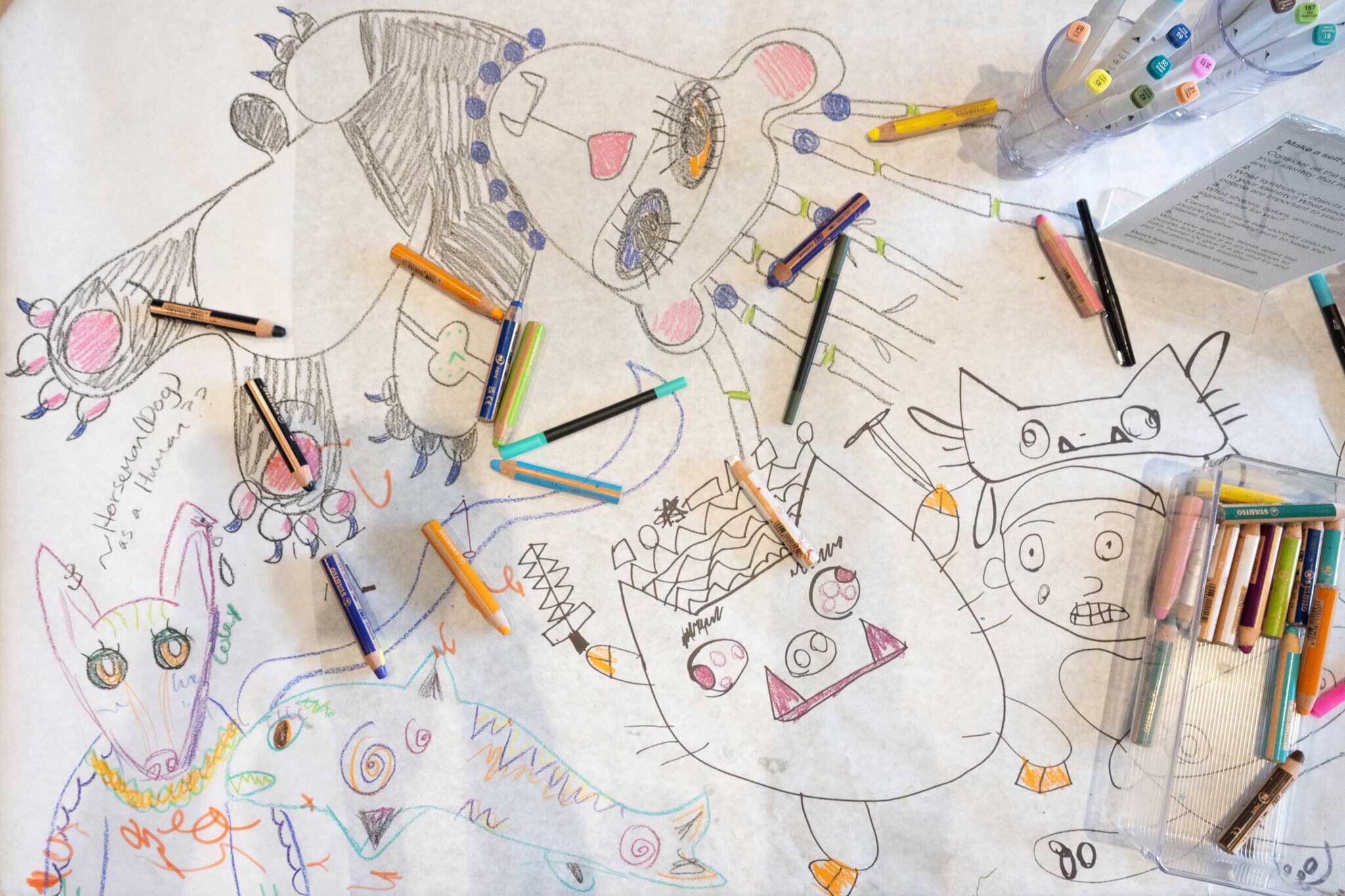
Families
Make Art with AARON and CENTOSunday, March 10, 2024
11 am–3 pm -
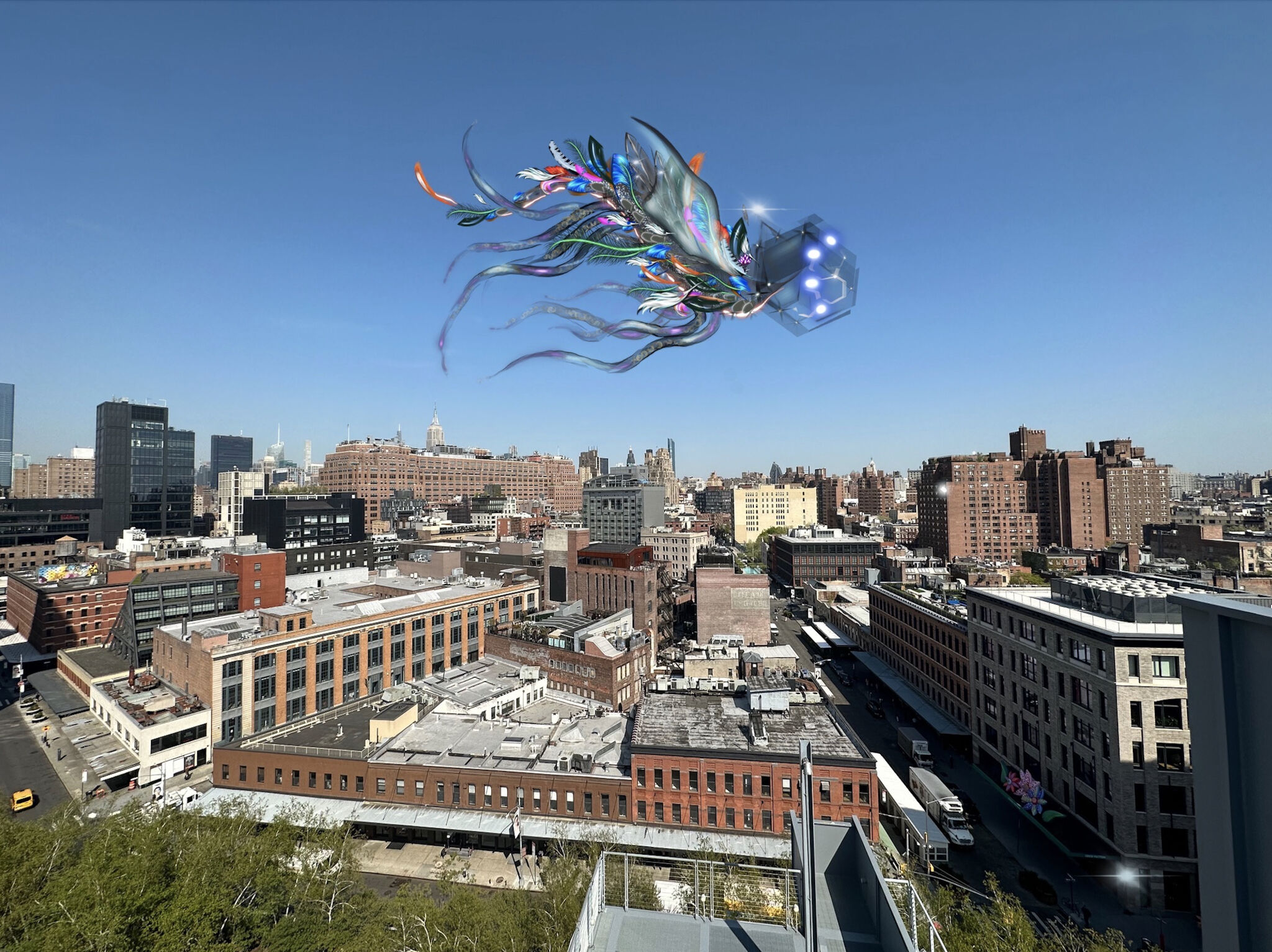
Family Open Studio: Nancy Baker Cahill
Saturday, February 3, 2024
11 am–3 pm -
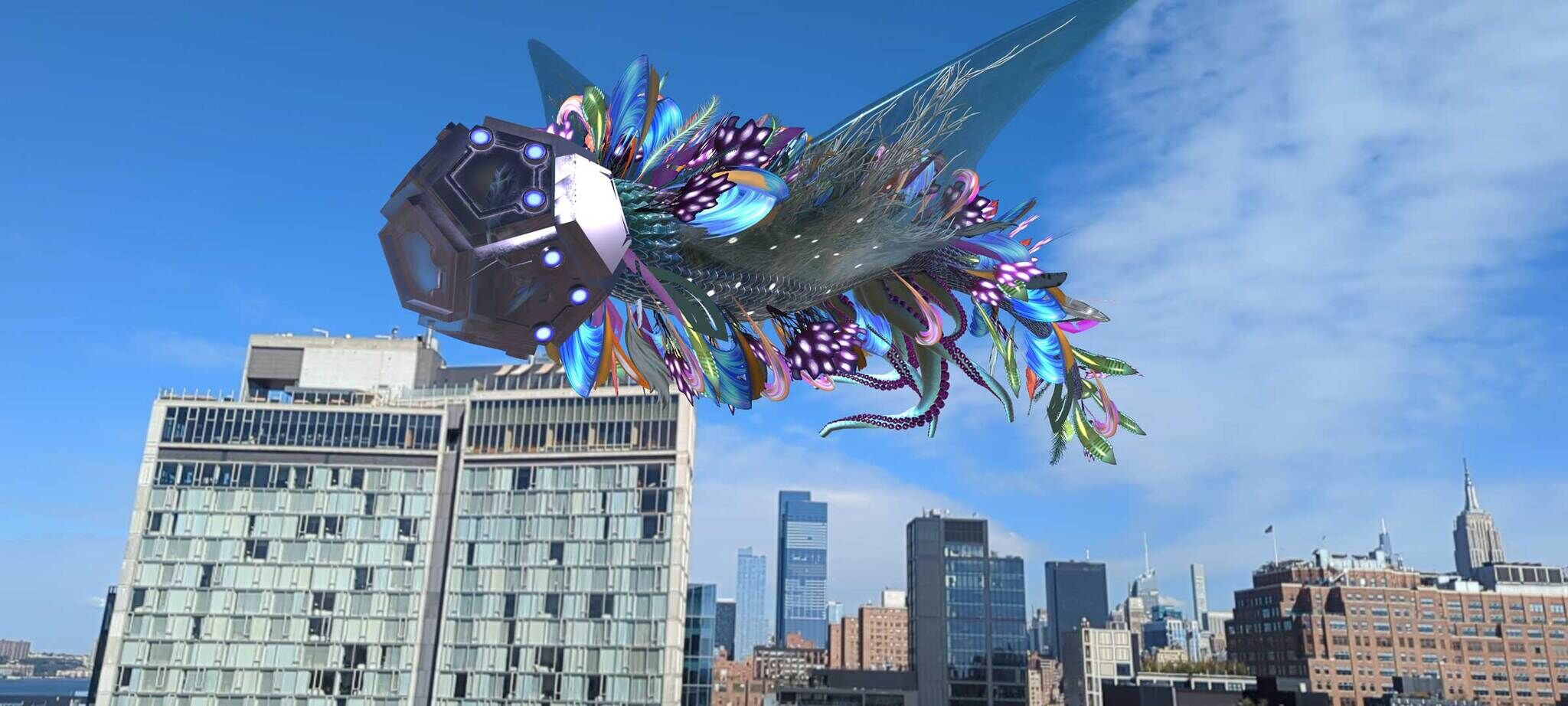
Open Studio for Teens: Augmented Reality workshop with artist Nancy Baker Cahill
Friday, February 2, 2024
4–6 pm -
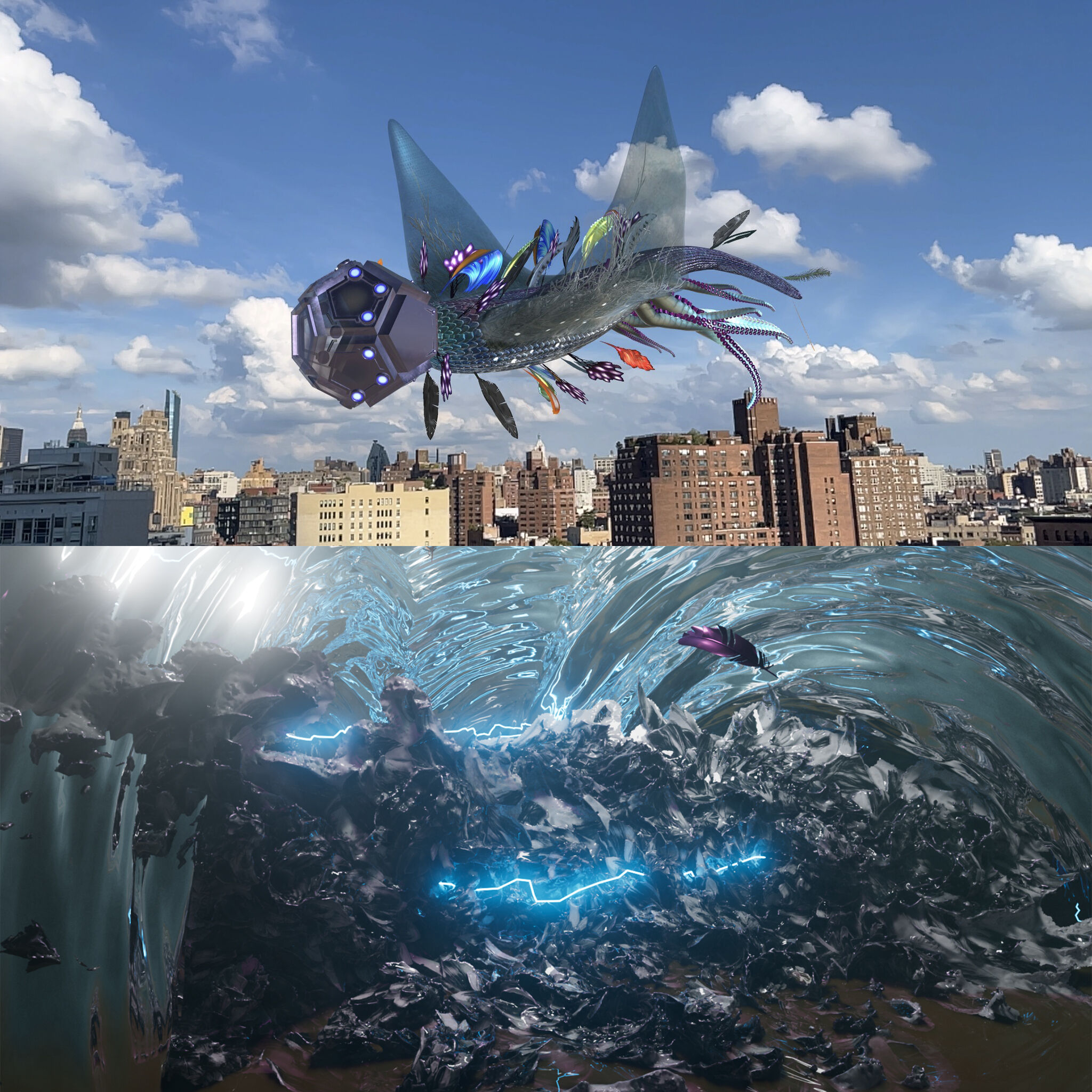
Walter Annenberg Lecture: Nancy Baker Cahill
Thursday, February 1, 2024
6:30–7:30 pm
In the News
"…viewers on site and around the globe can add feathers to its chimeric body—an act of evolutionary resilience in the face of an increasingly hostile and unpredictable climate" —Surface
"Hovering above the museum’s top story, CENTO is a hybrid, interspecies creature of the artist’s creation, her vision for one possible future for the planet in light of the current climate crisis." —Artnet News
"…the project embraces an ecosophical perspective that challenges the conventional divide between humans and the natural world, tackling the imperative for cross-species collaboration in confronting the climate crisis." —Designboom
"…the interactive project addresses the need for interspecies cooperation in the face of the climate crisis from an ecosophical approach, which criticises the traditional separation of humans from the natural world." —The Art Newspaper
"CENTO is a site-specific augmented reality (AR) creature whose evolution relies on the collective participation of visitors." —La Voce di New York
artport
View more on artport, the Whitney Museum's portal to Internet and new media art.

